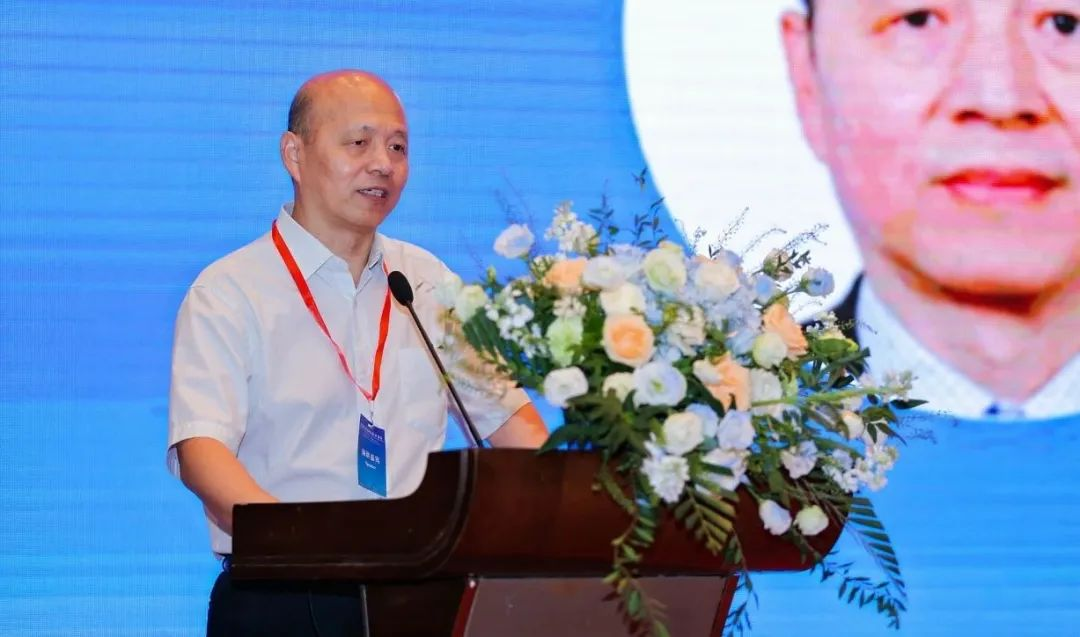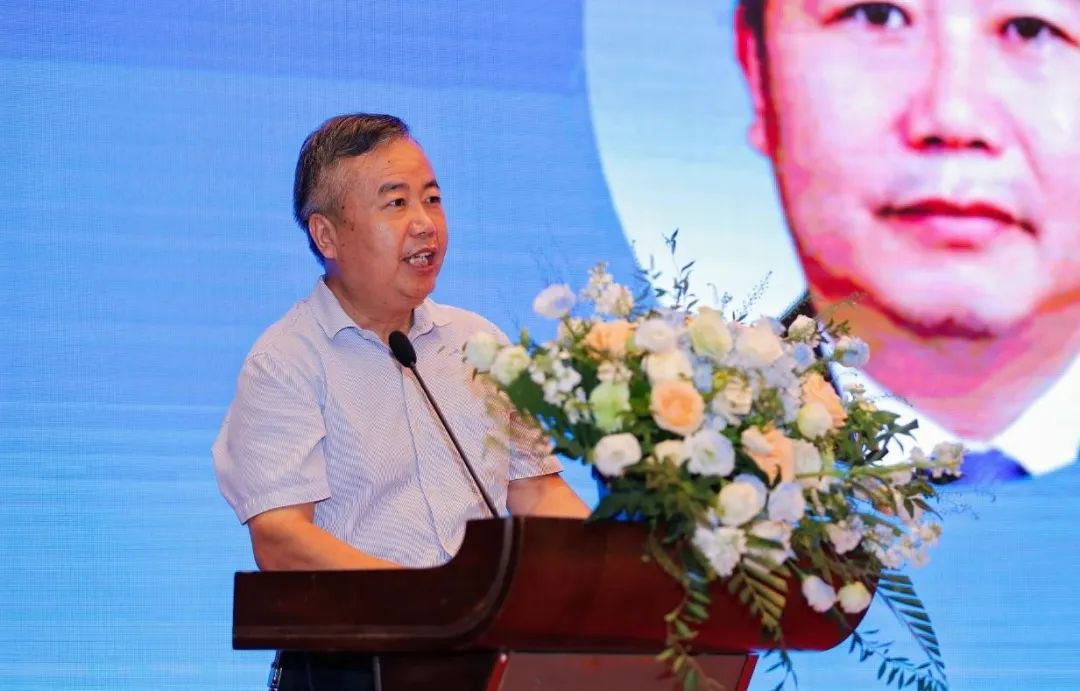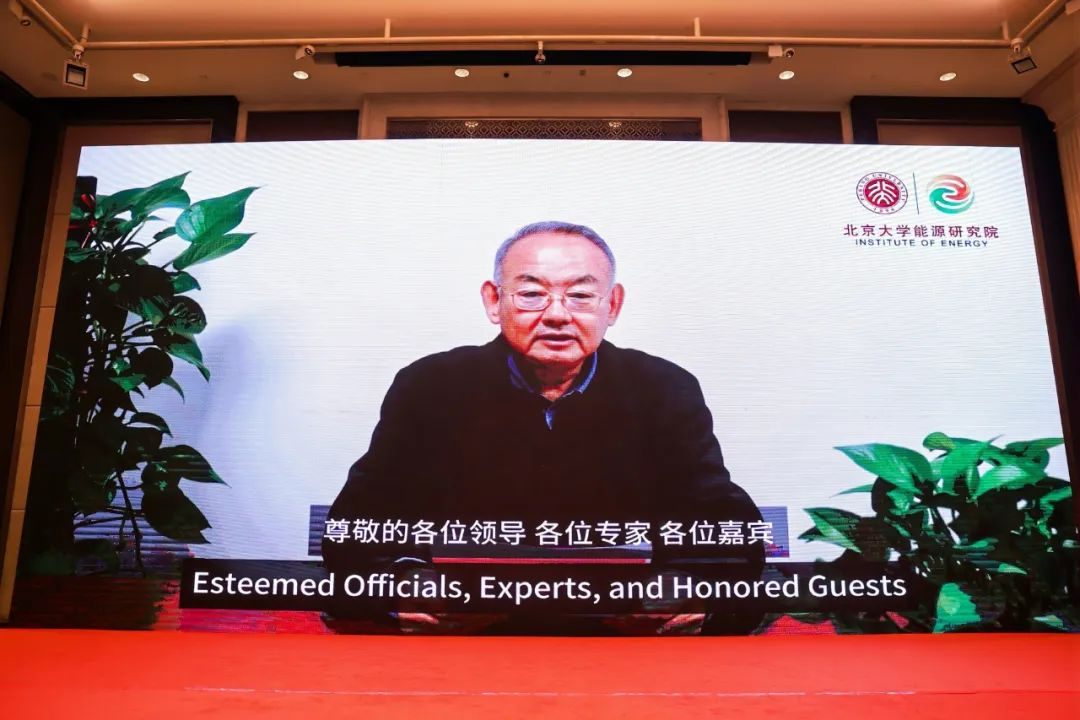Negotiations on a global plastics convention are imminent. How to tell the story of China?
The International Symposium on Plastic Pollution Control was recently held in Haikou City, Hainan Province to welcome the Fifth Intergovernmental Negotiation of the Global Plastics Convention (INC-5) to be held in November.More than a hundred leaders, experts and other guests from governments, enterprises, research institutions and social organizations attended the meeting to discuss the progress and challenges of plastic pollution control in China and the world, and shared best practices.
Looking forward to reaching a broad global consensus on plastic pollution control
The Fifth United Nations Environment Assembly in 2022 plans to formulate a legally binding instrument on plastic pollution, including marine plastic pollution, in 2024, pressing the acceleration button for global plastic pollution control.
Regarding the upcoming fifth intergovernmental negotiation (INC-5) of the Global Plastics Convention, Xiao Xuezhi, chief scientist of the Center for Foreign Cooperation and Exchanges of the Ministry of Ecology and Environment, said that he hopes that the meeting will reach an ambitious and practical plastics convention, and based on this, a broader global consensus on plastic pollution control is formed.

Xiao Xuezhi, chief scientist of the Foreign Cooperation and Exchange Center of the Ministry of Ecology and Environment, delivered a speech.
Silje Rem, senior consultant of the Environment Agency of Norway, emphasized that plastic pollution is an important environmental issue faced by the world. During the entire life cycle of plastics, various groups such as producers, manufacturers, and users of disposable plastic products are involved. Every link is faced with challenges and requires us to discuss them together.
In addition, experts at the meeting also conducted in-depth discussions and exchanges on the progress and policies of plastic pollution control in key countries and economies such as China, the United States, and the European Union, local plastic pollution control practices, industrial and social actions under the background of plastic circular economy, coordinated management of plastic pollution and climate change, and on topics such as progress and prospects of the Plastics Convention, and from macro and micro perspectives, policy and industry, and enterprises and individuals.
Explore plastic pollution control solutions with local characteristics that can be replicated and promoted
"China's effectiveness in plastic pollution control is obvious to all around the world, and both its total amount and scale of control are leading." Sun Yangzhao, Director of the Third Implementation Division of the Foreign Cooperation and Exchange Center of the Ministry of Ecology and Environment, showed the "report card" to the participants through a series of data:
In terms of source reduction, for the take-out industry, as of August 2023, the number of orders for "no tableware" exceeded 6 billion, greatly reducing the use of disposable plastic tableware. As of the end of September 2023, the proportion of "slimming tape" packaging in the express delivery industry has reached 95%, the proportion of e-commerce express shipments that are no longer packaged twice exceeds 90%, and the utilization rate of recycling transfer bags has reached 91.5%;
In terms of alternative products, the production capacity of China's degradable plastics industry is growing; 19 biodegradable mulch film test and demonstration bases have been built in 13 key film-using provinces such as Gansu and Shandong;
In the field of recycling, the number of companies engaged in waste plastic recycling and recycling in China currently exceeds 15000. In 2023, China's local plastic recycling volume will be approximately 16 million tons, an increase of 500,000 tons from 15.5 million tons in 2022, an increase of 3.2%.
"The issue of plastic pollution control is very complex. It requires not only extensive cooperation at home and abroad, but also the extensive participation of various stakeholders in domestic affairs, industry, academia and research. Plastic pollution control requires the joint efforts of all mankind. This is a common action." Sun Yangzhao said.
In the experience reports on plastic pollution control based on local conditions carried out in various places, Hainan Province is undoubtedly a model example. Sun Shanfang, deputy director of the Department of Ecology and Environment of Hainan Province, said in his speech that Hainan Province attaches great importance to the issue of plastic pollution control and has taken a series of measures, including prohibiting the production, sale and use of disposable non-degradable plastic products, and establishing a full-chain closed-loop plastic pollution control system. In order to coordinate the implementation of the province's plastic pollution control work, Hainan Province has established a coordination body involving 27 departments, and promoted the effective implementation of governance policies through local regulations, local standards, and plastic ban lists.

Sun Shanfang, deputy director of the Department of Ecology and Environment of Hainan Province, delivered a speech.
Jin Zhijun, academician of China Academy of Sciences and president of the Energy Research Institute of Peking University, emphasized that Hainan Province is at the forefront of the country in plastic pollution control. In the three years since the comprehensive ban on plastics, Hainan Province has used local legislation to solve the problem. With the help of a series of measures such as local regulations, local standards, plastic ban lists, supervision systems, and alternative product industries, it has formed a set of China's plastic pollution control plan. It has been widely recognized by various provinces and industries, and also provides China's Smart Hainan plan for global plastic pollution control.

Jin Zhijun, academician of China Academy of Sciences and president of the Energy Research Institute of Peking University, delivered an online speech.
Promote potential solutions such as reuse models to promote the development of circular economy
Chang Xinjie, vice president of public affairs for the Asia-Pacific region of Taolang Group, emphasized that plastic pollution control has begun to transform from a linear economy to a circular economy. A one-way linear economy will generate large-scale waste, pollution emissions and cause various hazards to the environment and human beings. Transformation is imperative.
Chen Xiaoting, project director of the Beijing Representative Office of the Allen MacArthur Foundation (UK), said that the report "Rethinking the Future of Plastics" released by the foundation and McKinsey shows that only 14% of the world's plastic packaging is effectively recycled. Wang Yonggang, secretary-general of the recycled plastics branch of China Material Recycling Association, pointed out that in 2023, China scrapped 62 million tons of plastics, of which 19 million tons were recycled, accounting for only 31%.
At a time when recovery rates are low and incineration not only fails to allow plastics to be recycled, but closed-loop will also generate additional carbon emissions, the world, including Europe and China, has turned its attention to finding solutions to reuse this emerging model. "The real establishment of a closed loop should be to retain materials, whether it is reused or recycled. It is best to achieve recycling at the same level to form a true closed loop."
Chang Xinjie then introduced the Swedish Extended Producer Responsibility (EPR) system (which requires producers to be responsible for the entire life cycle of their products from production to disposal, especially the recovery, treatment and recycling of products after disposal.) Situation: In Sweden, disposable plastic bottles are recycled through the deposit system, and the recovery rate can reach 92%; packaging other than beverage bottles, including plastic packaging, paper packaging, metal packaging, etc., are within the scope of materials specified in the EPR system.
Zheng Xue, director-general of getting rid of plastic binding, pointed out that at present, attempts to reuse recycled express boxes and recycled lunch boxes are being carried out in the two major fields of express delivery and take-out in my country. The results are also obvious, and it has become the most prominent contribution to reducing the source of plastics. two major industries. A large-scale survey on consumer attitudes and perceptions towards reuse patterns conducted previously by getting rid of plastic binding also showed that more than 80% of consumers are willing to support and use recycled products.
Jiang Nanqing, president of the Qinghe Circular Economy and Carbon Neutralization Research Institute, concluded that circular economy is a comprehensive and systematic task, and it is also a way to forge new productive forces and help transform emerging industries. "Not only technology, but also materials, scientific research, systems and various constructions. Therefore, all parties need to participate in talent training. I hope everyone will work together to promote the development of circular economy."
It is reported that this seminar was hosted by the Energy Research Institute of Peking University and the Basel Convention Asia-Pacific Regional Center, and supported by the Shenzhen Zero Waste Environmental Protection Public Welfare Development Center, Guangzhou City Free of Plastic Binding Environmental Consulting Co., Ltd., and the Alan MacArthur Foundation (UK) Beijing Representative Office and the World Resources Institute (USA) Beijing Representative Office.







